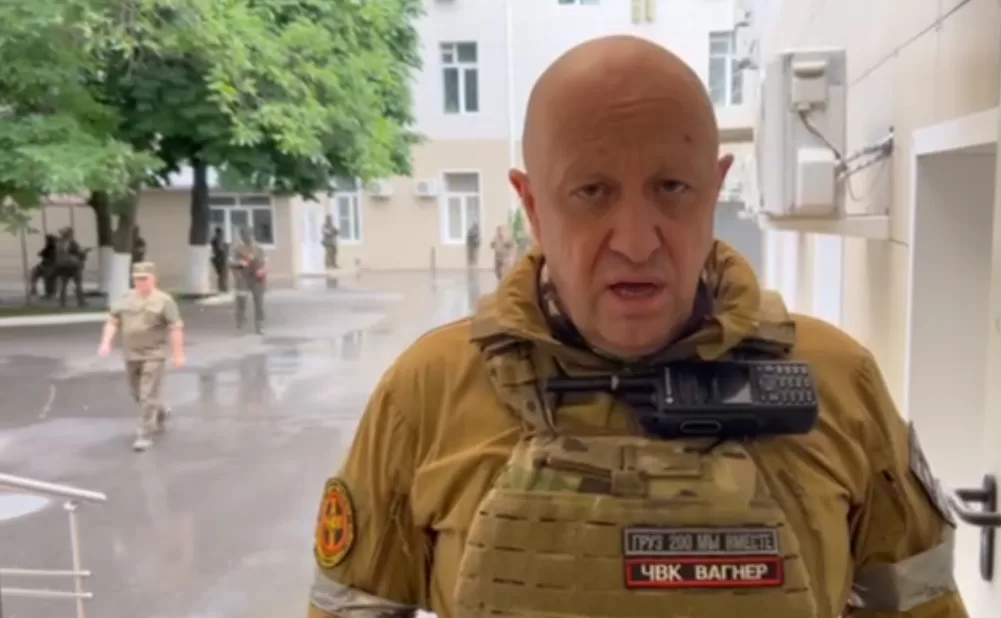Last week’s mutiny by Yevgeny Prigozhin, the leader of the mercenary Wagner Group, provided a challenge to established western media outlets, such was the speed of the advance by the man known as Putin’s chef towards Moscow and the lack of verifiable information coming out of Russia. The subsequent accommodation between Prigozhin and Putin, apparently brokered by the Belarus leader Alyaksandr Lukashenska, has left even the most seasoned neo-Kremlinologists scratching their heads.
Step forward the Russian dissidents and independent news services. Index has been privileged to work with the opposition to Putin since long before the war in Ukraine and it was good to see them coming into their own last week. Here are some of our recommendations for those who want to stay abreast of the fast-moving and often baffling developments in Russia. Kevin Rothrock (@KevinRothrock), the managing editor of the English-language version of the independent online site Meduza, kept his Twitter feed consistently updated during the coup-that-never-was. Where others were breathless and over-excited, Rothrock was calm and measured. His colleague Lilya Yapparova (@lilia_yapparova) provided detailed analysis on the future of Prigozhin from sources inside the Russian military and the Wagner Group itself. Yapparova’s far-reaching investigation looks into what Wagner forces might contribute to Belarusian military capacity and the organisation’s operations in Africa and Syria. She also looks into Wagner’s finances in Russia, its continued recruitment for the war in Ukraine and internet trolling operations. Yapporova quotes the work of Dossier Center, a media outlet connected to the British-based Putin opponent Mikhail Khodorkovsksy, which tracks criminals associated with the Russian president. Khodorkovsky himself was active on his Telegram channel throughout the mutiny and accessible to non-Russian speakers through the messaging app’s translate function. Controversially he urged Russians to support Prigozhin’s coup. His view was that anything would be better than Putin. The Russian billionaire later concluded that the outcome of Prigozhin’s operation was not important. “The very fact that this happened is a powerful blow to Putin after which he will be perceived differently by millions.”
Doxa, the publication founded by students opposed by Putin and now outlawed by the regime, continues to do a good job of aggregating news from reliable sources. This week it included a report from The Bell, founded by Russian financial journalist Elizaveta Osetinskaya, suggesting that Prigozhin’s troll factory companies have been paralysed following raids after the uprising and were looking for a new owner. Osetinskaya, a former editor of Russian Forbes magazine, was declared a foreign agent after condemning the invasion of Ukraine.
In a new development this week, Novaya Gazeta, the independent Russian news outlet whose editor Dmitry Muratov won the Nobel Peace Prize in 2021, was put on the Kremlin’s list of “undesirable” organisations. This makes it a crime for the publication, now based in Latvia, to operate in Russia. It is also now illegal for Russians to engage with the publication or share its content online.
OVD-Info, the human rights project which won the 2022 Index on Censorship campaigning award, decided not to provide a running commentary of events and stuck to its mission of reporting on arrests of regime opponents. In his weekly newsletter Dan Storyev, English editor of OVD-Info, wrote: “Russia has had a busy few days as I am sure we all know. This newsletter is not for military analysis so I won’t cover Prigozhin’s manoeuvres here — but it’s important to remember, that in the end, it is going to be ordinary Russians, Russian civil society who would bear the brunt of any violence that a coup, or a paranoid preventive crackdown could unleash.”
If there is one thing that unites all the outlets mentioned here (beyond their undoubted courage), it is the care they take in the sourcing of all information they publish. In the post-truth world of Putin’s Russia, facts are precious commodities.






